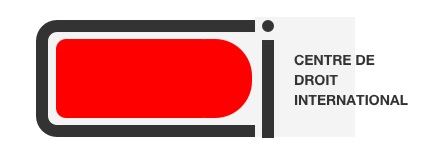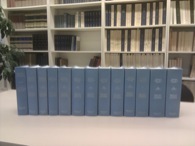
A la suite de l’arrêt de sa publication papier, le Centre de droit international de l’ULB met en vente plusieurs collections de Recueil des ordonnances, décisions, jugements et arrêts du Tribunal Pénal International pour le Rwanda publiées chez Bruylant avec le concours du Service Public Fédéral Affaires étrangères de Belgique. Reprenant la jurisprudence de 1995 à 2003, cette collection bilingue (français – anglais) et complétée d’un index exhaustif, offre au praticien du droit international pénal un accès pratique et rapide aux décisions du tribunal. Continuées en version électronique, les dernières éditions des recueils seront prochainement diffusés sur le site du Centre de Droit International.
Les recueils sont mis en vente au prix de 500 euros pour la collection complète (TVA NC), soit avec une réduction de plus de 75 % par rapport au prix initial (+ éventuels frais de port). Un supplément d’information concernant les recueils peut être obtenu sur le site internet du centre de droit international.
Les personnes souhaitant procéder à un achat sont invitées à prendre contact avec le Centre de Droit International.
Following the end of its paper publication, the Center for international law is selling several collections of the Reports of Orders, Decisions and Judgments of the International Criminal Tribunal for Rwanda published by Bruylant with the assistance of the Ministry of Foreign Affairs of Belgium. Collecting case-law from 1995 to 2003, this bilingual collection (English – French) completed by an exhaustive index, offers international criminal law practitioners a quick and easy access to the decisions of the tribunal. Continued in an electronic version, the latest editions of the reports will soon be published on the website of the Center for International Law.
The reports are available for the price of 500 euros for the whole collection (Excl. VAT), thus with a deduction of more than 75% on the original price (+ possible costs of delivery). More information about the reports can be found on the website of the Center for International Law.
Interested buyers are invited to contact the Center for International Law by contacting the Center For International Law.
 Le Centre de Droit International a le plaisir de vous informer que Monsieur Franck Latty, donnera prochainement une conférence ayant pour thème « Le juge et la Lex Sportiva ».
Le Centre de Droit International a le plaisir de vous informer que Monsieur Franck Latty, donnera prochainement une conférence ayant pour thème « Le juge et la Lex Sportiva ».

 Patricia Naftali, Maître de conférences intérimaire au Centre de droit international, a été proclamée docteure en droit à l’Université Libre de Bruxelles, ce vendredi 8 février 2013. Sa thèse a pour titre « La construction du ‘droit à la vérité’ en droit international – Une ressource ambivalente à la croisée de plusieurs mobilisations ».
Patricia Naftali, Maître de conférences intérimaire au Centre de droit international, a été proclamée docteure en droit à l’Université Libre de Bruxelles, ce vendredi 8 février 2013. Sa thèse a pour titre « La construction du ‘droit à la vérité’ en droit international – Une ressource ambivalente à la croisée de plusieurs mobilisations ».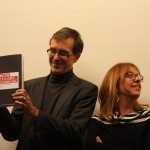
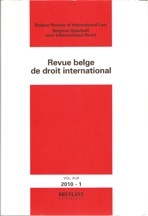 Le centre de droit international a le plaisir de vous informer de la mise en ligne par les éditions Bruylant du nouveau site internet de la Revue belge de droit international. Outre les informations générales sur la revue et des informations sur les derniers numéros parus, le nouveau site offre désormais un accès en ligne vers les anciens numéros de la revue. La section
Le centre de droit international a le plaisir de vous informer de la mise en ligne par les éditions Bruylant du nouveau site internet de la Revue belge de droit international. Outre les informations générales sur la revue et des informations sur les derniers numéros parus, le nouveau site offre désormais un accès en ligne vers les anciens numéros de la revue. La section 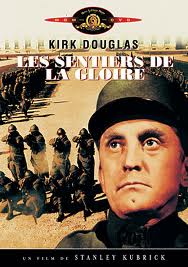 Le Centre de Droit International et l’Action de recherche concertée de la faculté de droit de l’ULB ont le plaisir de vous informer que la première séance du cycle de projections-débat « Arrêts sur images » aura lieu ce jeudi 7 février 2013.
Le Centre de Droit International et l’Action de recherche concertée de la faculté de droit de l’ULB ont le plaisir de vous informer que la première séance du cycle de projections-débat « Arrêts sur images » aura lieu ce jeudi 7 février 2013.
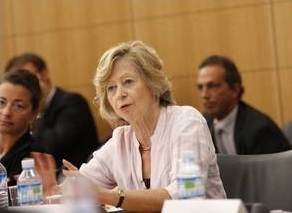
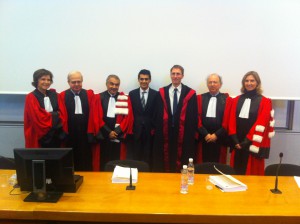

 Le Centre de droit international de l’U.L.B. a le plaisir de vous convier à la conférence que donnera Le Professeur Gérard NIYUNGEKO, Juge et ancien Président de la Cour africaine des droits de l’homme et des peuples sur le thème « La Cour africaine des droits de l’homme et des peuples: défis et perspectives ».
Le Centre de droit international de l’U.L.B. a le plaisir de vous convier à la conférence que donnera Le Professeur Gérard NIYUNGEKO, Juge et ancien Président de la Cour africaine des droits de l’homme et des peuples sur le thème « La Cour africaine des droits de l’homme et des peuples: défis et perspectives ».